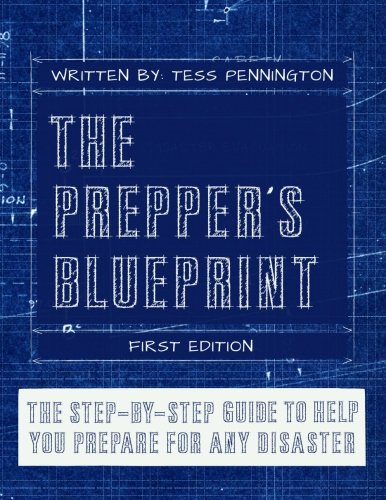Listen to the Audio Mises Wire version of this article.
During the Trump administration, I pointed to a problem with the American presidential system: it provides presidents with essentially unchecked power when it comes to launching a nuclear holocaust. Presidents can initiate nuclear war whenever they like. They need not be acting in a defensive capacity. This should strike any sane person as a rather insane policy, and as a huge hole in the so-called checks and balances on which the US political system is allegedly premised.
Because of the Beltway hysteria over Trump, the Congress—possibly for the first time—considered measures to rein in the president in this regard. It’s a shame it required Trump derangement syndrome to make this an issue, but we should take what we can get when it comes to admitting some of the grave threats to commonsensical governance that plague the American national security state.
Naturally, these lukewarm attempts at reform failed, likely because the Pentagon was surely opposed to them. While the president’s power is essentially unrestrained in this manner, the loosey goosey approach to controlling launching power also empowers the Pentagon. Surely, the Pentagon’s generals wanted to make sure they can have a big role in launching World War III on a whim as well.
 The Prepperu2019s Blue...
Best Price: $11.98
Buy New $18.98
(as of 02:20 UTC - Details)
The Prepperu2019s Blue...
Best Price: $11.98
Buy New $18.98
(as of 02:20 UTC - Details)
Moreover, Trump supporters opposed the idea as well. When I published the 2020 article on the problem of unchecked presidential power in this regard, I was savaged by Trump supporters on social media for allegedly being a “never Trumper” and failing to understand that the power of the president must never be limited in any way, lest it get in the way of Trump “owning the libs.” Now that Trump is an ex-president, however, both Washington and the hero-worshipping Trump backers will completely forget about the issue. As far as Washington is concerned, the nuke codes are now being controlled by one of their own. And few Trump supporters ever cared about limiting presidential power anyway.
So, the power to incinerate a billion or more human beings over morning coffee remains in the power of the president. This morning, Biden supporters on Twitter were ecstatic over the video of the nuclear “football”—the device which enables the president to launch the nukes—being handed over to Biden:
Football incoming. pic.twitter.com/Ww4wz1GbIE
— Mike DeBonis (@mikedebonis) January 20, 2021
But this should be little comfort to anyone who’s paying attention, especially given that the launch codes are now under the thumb of a man who may not even know what year it is.
But regardless of who is president, the fact is that the only thing that stands between a president and his launching of nuclear missiles is his own moral compass. Anyone who isn’t hopelessly naïve about politicians and political institutions will find this deeply disturbing.
A Brief History of the Nuclear Launch Process
But why has there been no significant effort to develop some sort of check or veto to this process? Part of this lies in the fact the US military establishment maintains a posture very much in favor of erring on the side of aggression rather than restraint. In the early days of the nuclear-armed Cold War, there were essentially no safeguards in place. A man claiming to be the president, if he had access to the right people, could theoretically call for a nuclear strike, and there was no set way of remotely verifying his identity.
 The Ultimate Guide to ...
Buy New $16.99
(as of 02:13 UTC - Details)
The Ultimate Guide to ...
Buy New $16.99
(as of 02:13 UTC - Details)
A more robust process was put in place by President Kennedy:
Although its origins remain highly classified, the Football can be traced back to the 1962 Cuban missile crisis. Privately, John F. Kennedy believed that nuclear weapons were, as he put it, “only good for deterring.” He also felt it was “insane that two men, sitting on opposite sides of the world, should be able to decide to bring an end to civilization.” Horrified by the doctrine known as MAD (mutually assured destruction), JFK ordered locks to be placed on nuclear weapons and demanded alternatives to the “all or nothing” nuclear war plan.
Kennedy began asking questions about how a nuclear strike might actually take place, and specifically asked:
- “What would I say to the Joint War Room to launch an immediate nuclear strike?”
- “How would the person who received my instructions verify them?”
Kennedy felt that it was important to ensure that only the president—whose identity could somehow be verified—could authorize a strike.
According to some critics of the Pentagon, however, the military was committed to making it easy to launch the missiles. The Air Force has even been accused of using “00000000” as a code that could enable the launch of a nuclear missile. According to Foreign Policy:
Bruce Blair, a nuclear security expert and former launch officer…[and] now a scholar and author at Princeton University, first raised the idea in a piece published in 2004. He accused the Air Force of circumventing President John F. Kennedy’s 1962 order to install extra security codes to safeguard against accidental or unauthorized launch by putting them in place, but making them painfully simple to the missile launch officers who manned underground bunkers. Doing so, Blair said, effectively eliminated the codes’ usefulness.
Blair contends this easy-code protocol persisted for at least a decade, including the period when he was a launch officer.
For its part, the Air Force denies using the specific code “00000000.” Nonetheless, the prolaunch posture of the Pentagon has long been evident. As noted by Jeffrey Lewis at the Middlebury Institute of International Studies:
Bruce is correct about the major historical narrative at stake—the United States Air Force, particularly Strategic Air Command, generally resisted the introduction of technical safeguards out of concerns that such measures might make it more difficult to use the weapons in the event of a conflict….Like many other practices of the period…the Air Force’s emphasis on readiness at the expense of safety at that time seems, admittedly with the benefit of hindsight, unwise in the extreme.
Other potential sources of human error or sabotage have surfaced over the years as well.
Military personnel close to President Clinton have claimed that he misplaced the so-called biscuit, the card on which nuclear launch codes are printed. Presidents have often carried them in a coat pocket. But they can be misplaced. According to one of the men who carried the football:
 Prepperu2019s Pantry: ...
Best Price: $5.48
Buy New $3.22
(as of 04:30 UTC - Details)
Prepperu2019s Pantry: ...
Best Price: $5.48
Buy New $3.22
(as of 04:30 UTC - Details)
“[Clinton] thought he just placed them upstairs,” Patterson recalled. “We called upstairs, we started a search around the White House for the codes, and he finally confessed that he in fact misplaced them. He couldn’t recall when he had last seen them.”
Other cases have reputedly occurred. President Carter allegedly “left his biscuit in a suit that got sent to the dry cleaners.”
One instance that has been confirmed, however, is when Ronald Reagan’s codes were left discarded and unattended following his attempted assassination:
During the chaos that followed the shooting, the military aide was separated from the president, and did not accompany him to the George Washington University hospital. In the moments before Reagan was wheeled into the operating theater, he was stripped of his clothes and other possessions. The Biscuit was later found abandoned, unceremoniously dumped in a hospital plastic bag.
While mere loss of the biscuit does not trigger any sort of launch, it is not difficult to predict how access to the codes could be abused by someone else in a chaotic wartime situation. Scholars have suggested several potential problems with verification and authorization.
For example, what if a president refused to launch missiles in opposition to the emphatic urgings of his subordinates? Could he then be incapacitated by his subordinates and his launch codes used under the authorization of another person?
It is unknown how this would play out. According to Ron Rosenbaum in How the End Begins: The Road to a Nuclear World War III,
the whole question of nuclear command authority, and of who takes control of that authority if the president is killed in a nuclear attack, has frustrated experts and politicians for decades. Yale Law School professor Akhil Reed Amar has called the confusing succession problem “a disaster waiting to happen.”
This suggests problems whether a president is killed, thought to be killed, or is unreachable for a period. If the vice president assumes office and the original president later resurfaces, who then controls the nuclear weapons? Conspirators could also attempt to actively wrest control of launch authorization from presidents through deception. This could include having the president declared incapacitated for reasons of insanity under the Twenty-Fifth Amendment. But Rosenbaum writes:
 The Dark Secrets of SH...
Best Price: $17.24
Buy New $17.75
(as of 08:50 UTC - Details)
The Dark Secrets of SH...
Best Price: $17.24
Buy New $17.75
(as of 08:50 UTC - Details)
By then we’d be in coup territory, or inside an episode of 24. And what is sanity or insanity? What if the president refuses to carry out the deterrent threat of genocidal retaliation once it’s failed to deter a strike on us? Can those around him force the president to give them the Gold Codes and in effect give the launch order? Who determines who is sane and who is insane?
This strategy, of course, could be used by either side: a prolaunch vice president might ally with a secretary of defense to declare an antilaunch president mentally incompetent. Or, antilaunch underlings could seek to declare the president insane so as to prevent a launch.
Either way, it’s clear that this is uncharted territory and well outside the bounds of any orderly process of checks and balances on executive power.
Problems extend down the chain of command as well. In 1973, launch officer Major Harold Hering asked his superiors for clarification on how he could know if the president giving the order was sane. The military brass had no answer. Instead, Hering was forced out of the Air Force. Although the military likes to claim personnel are required only to follow legal orders—i.e., not planet-destroying orders issued by insane people—all that really mattered was that Hering be willing to launch missiles without question.
The fact of the matter is that there is no way to confirm that a president has consulted any facts on the necessity of nuclear war, or that the president is in his (or her) right mind when ordering a nuclear strike.
Note: The views expressed on Mises.org are not necessarily those of the Mises Institute.





